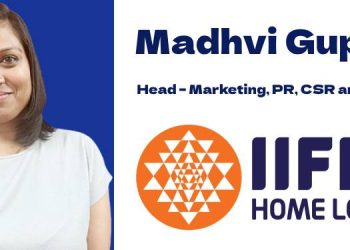The Department of Consumer Affairs announced on 11th April that the Government will come up with guidelines for influencers that requires them to display their qualification before endorsing health and wellness products.
In March 2023, the Advertising Standards Council of India (ASCI) had also released a set of guidelines for celebrities and influencers citing that all their endorsements should be in compliance with the Consumer Protection Act.
Currently valued at over 12 billion rupees, the Indian influencer space is projected to grow at a compounded annual growth rate of 25 pc over the next five years, as per Statista.
Will the need to display qualification impact the number of influencers in health and wellness? If yes, how? Will it also have an impact on their following? We reached out to some industry experts.

Ambika Sharma, Founder & MD, Pulp Strategy, noted that there are medical professionals who have turned into influencers and there are others who don’t hold a professional degree or the necessary qualifications. She said, “Yes, this will impact the influencers as it is a big category and the one who isn’t certified or qualified, must not speak about healthcare products that are prescription-driven like medications and treatment. It will impact the numbers also. It will also impact the following because people seeking medical support are quite vulnerable and end up taking an emotional decision. This kind of regulation in this space will be a big help in such cases.”

Hinal Mamania, Head – Influencer Marketing, Budding Influencers, talks about how this move will have a positive impact on the health space while discussing the impact the new notification will have on content, creators, marketing agencies and the creator economy as a whole.
“Health and wellness influencers have become a significant force in shaping consumer behaviour and attitudes towards fitness, nutrition, and wellbeing products and services. They can inspire their followers to adopt healthy habits and try new products, promoting trust and authenticity. In terms of content, the move will ensure that only qualified professionals are providing health and wellness advice, which will promote accurate and safe information. It may also result in a shift towards more educational and informative content that emphasises the importance of qualifications and certifications.”
“For agencies, this move may lead to increased scrutiny of the qualifications and credentials of the influencers one represents. As such, it may become increasingly important for your agency to vet influencers and ensure that they have the necessary qualifications to provide health and wellness advice. In the creator economy, this move may result in a shift towards influencers with formal qualifications and certifications, which could lead to increased opportunities for those who have invested in their education and professional development.”
“For the creators themselves, it may mean that they need to obtain the necessary certifications and qualifications leading to increased credibility and opportunities in the long run,” she said.

Sumit Gupta, Founder, Viral Pitch, believes that this development is crucial in ensuring that the healthcare industry is not misused for profit and brands and marketers will now have to carefully consider the qualifications of influencers before engaging in promotional activities. He noted, “I think that these regulations will help to ensure that influencer marketing in the health and wellness industry is done responsibly and ethically, promoting the safety and well-being of consumers.”
“Influencers should stay up-to-date with the latest guidelines and regulations set forth by the DOCA and other regulatory bodies. This will ensure that they are always in compliance and avoid any potential legal or ethical issues. In my opinion, by promoting only safe and effective products or practices, influencers can build trust with their audience and establish themselves as reliable sources of health and wellness information,” he added.
Everyone has a right to express an opinion, but not disseminate medical advice. That’s a recurring point in the feedback received from market watchers. But there is a distinction when it comes to wellness.

Aahana Mehta, Director, Talent Partnerships, Pollen (Zoo Media), stated, “It is crucial for advertisers and endorsers to exercise great care and responsibility when communicating about products related to health and wellness. It is also important to recognise that non-expert influencers should refrain from discussing medications or medical treatments. However, in the case of wellness products, influencers may speak from personal experience rather than making recommendations as experts. For instance, an influencer who shares their positive experience using a skincare product and encourages their followers to try it is simply providing a product review, not offering expertise. While communication should be closely monitored and guidelines put in place, requiring certification before discussing personal experiences or product reviews would significantly impact influencer revenue, given their significant market share in the health and wellness category.”

“A lot of the creators who talk about health and wellness who don’t have qualification but just create content on the basis of their own experiences, people will now be aware that they don’t have qualification and are just speaking out of experiences and not credibility. I think it’s great for the user and the consumers that they know whoever is endorsing the product may not have the qualification to talk about it and it is just a subjective point of view,” observes Ayush Shukla, Founder, Finnet Media.

Gautam Madhavan, Founder & CEO, Mad Influence, said, “As an amazing community, we always strive to bring more credible resources to our campaigns, and as members of the influencer community, we always welcome and support such guidelines that will eventually make this industry more credible and responsible. The recent announcement by the Indian government to require qualification disclosure will ensure transparency and credibility in the health and wellness industry. It will ultimately result in a more informed audience and promote trust between influencers and their followers.”

Highlighting that the move will help establish transparency and will add to credibility, Ajit Narayan, CMO, Socxo, pointed out that qualifications alone may not guarantee the accuracy or effectiveness of the promoted products.
He explained, “Consumers should still do their own research and consider multiple sources of information before making any health or wellness decisions. Especially in a market which is loaded with fake degrees and quack doctor influencers peddling nonsense. This is already happening and that too in mainstream media itself. It’s important to strike a balance and consider other factors such as the influencer’s track record, the quality of the products being promoted, and the need for ongoing regulatory oversight in the industry.”
Feedback: [email protected]

















